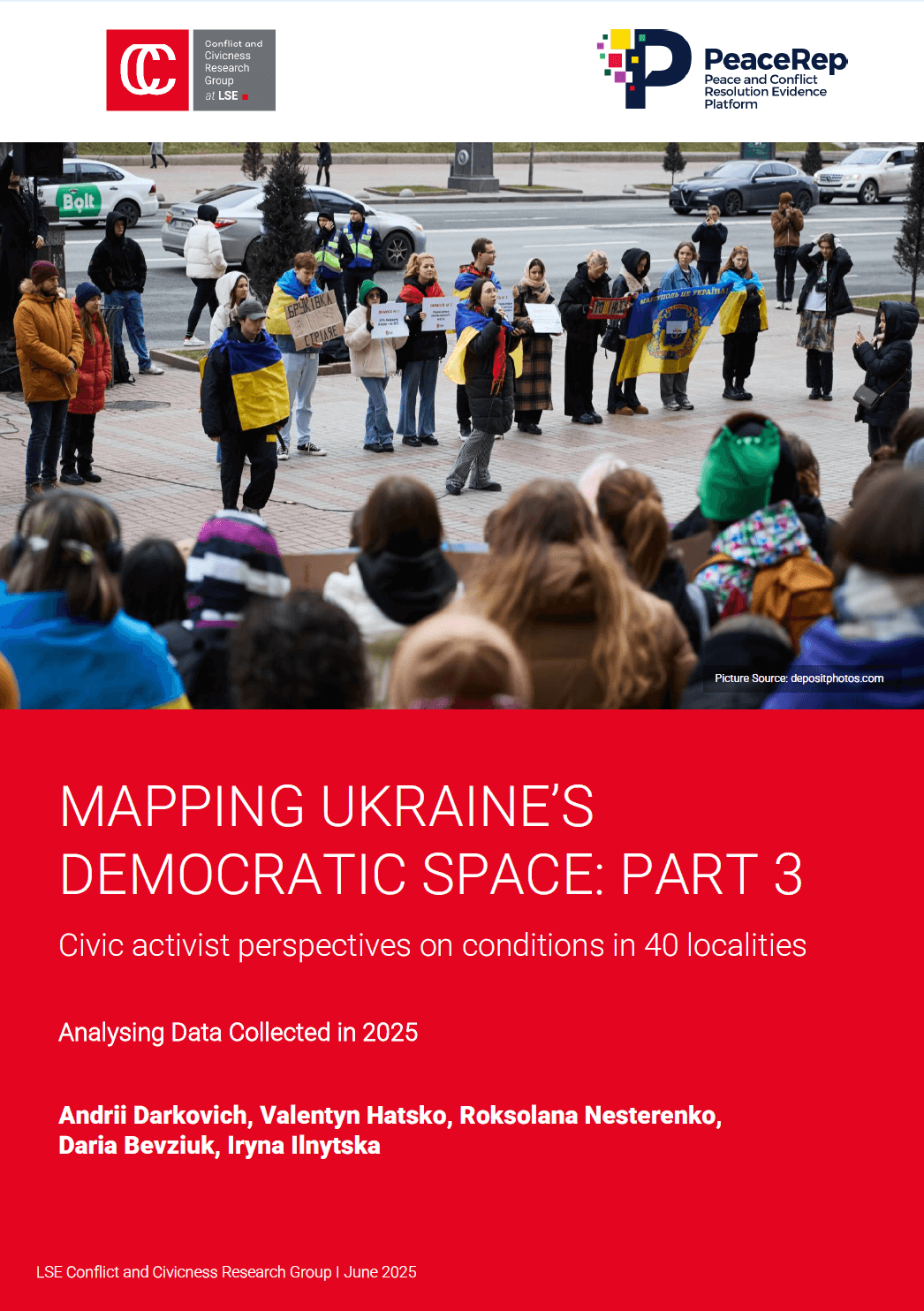- Kyiv School of Economics
- People
- Stories
- Mapping Ukraine’s Democratic Space: Part 3

This report is the third round in the Mapping Ukraine’s Democratic Space research series, developed through a collaboration between the Kyiv School of Economics and the London School of Economics Conflict and Civicness Research Group. It provides updated insights into the lived experience of civic actors across Ukraine’s localities during the third year of full-scale war, and compares with data from previous rounds of surveys
Drawing on a survey of 120 civic key informants from 40 hromadas, along with in-depth interviews and a focus group conducted in early 2025, the report explores how local democracy is adapting to wartime pressures. It examines perceptions of security, economic recovery, access to services, governance, and the functioning of civic engagement under conditions of risk and uncertainty.
The findings reveal a complex picture. Many local governments remain functional, and even proactive, despite reduced resources and new military hierarchies. Civic actors continue to play an active role in community life, often relying on informal channels rather than institutionalized mechanisms. While participatory tools such as public consultations or civic councils are often inactive, local resilience is still driven by volunteerism, personal networks, and bottom-up innovation.
The report also highlights ongoing vulnerabilities. Security concerns have intensified since late 2024, and tensions between displaced persons and host communities persist in some areas. Activists express concerns about burnout, lack of funding, and reduced inclusion in decision-making. Despite this, the democratic space remains open and dynamic, rooted in local agency and adaptive governance.
Mapping Ukraine’s Democratic Space: Part 3 offers an important snapshot of how war has reconfigured civic life at the local level. It provides policy-relevant evidence on the role of decentralization, the need to support local civic infrastructure, and the importance of inclusive governance during and after war.
The full report is available in English.
This research is supported by the Peace and Conflict Resolution Evidence Platform (PeaceRep), funded by UK International Development from the UK government. However, the views expressed are those of the authors and do not necessarily reflect the UK government’s official policies. Any use of this work should acknowledge the authors and the Peace and Conflict Resolution Evidence Platform.
